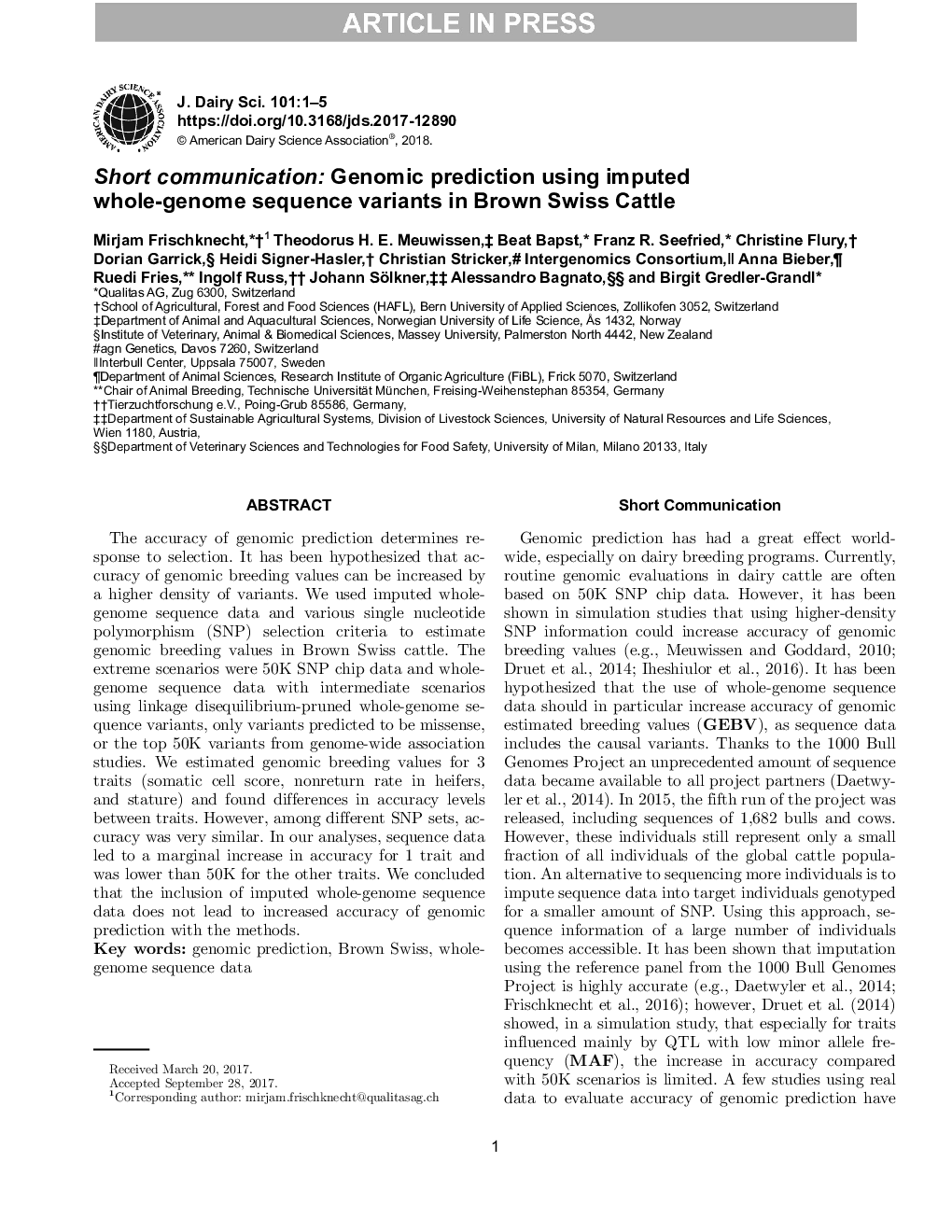| Article ID | Journal | Published Year | Pages | File Type |
|---|---|---|---|---|
| 8501601 | Journal of Dairy Science | 2018 | 5 Pages |
Abstract
The accuracy of genomic prediction determines response to selection. It has been hypothesized that accuracy of genomic breeding values can be increased by a higher density of variants. We used imputed whole-genome sequence data and various single nucleotide polymorphism (SNP) selection criteria to estimate genomic breeding values in Brown Swiss cattle. The extreme scenarios were 50K SNP chip data and whole-genome sequence data with intermediate scenarios using linkage disequilibrium-pruned whole-genome sequence variants, only variants predicted to be missense, or the top 50K variants from genome-wide association studies. We estimated genomic breeding values for 3 traits (somatic cell score, nonreturn rate in heifers, and stature) and found differences in accuracy levels between traits. However, among different SNP sets, accuracy was very similar. In our analyses, sequence data led to a marginal increase in accuracy for 1 trait and was lower than 50K for the other traits. We concluded that the inclusion of imputed whole-genome sequence data does not lead to increased accuracy of genomic prediction with the methods.
Keywords
Related Topics
Life Sciences
Agricultural and Biological Sciences
Animal Science and Zoology
Authors
Mirjam Frischknecht, Theodorus H.E. Meuwissen, Beat Bapst, Franz R. Seefried, Christine Flury, Dorian Garrick, Heidi Signer-Hasler, Christian Stricker, Intergenomics Consortium Intergenomics Consortium, Anna Bieber, Ruedi Fries, Ingolf Russ,
